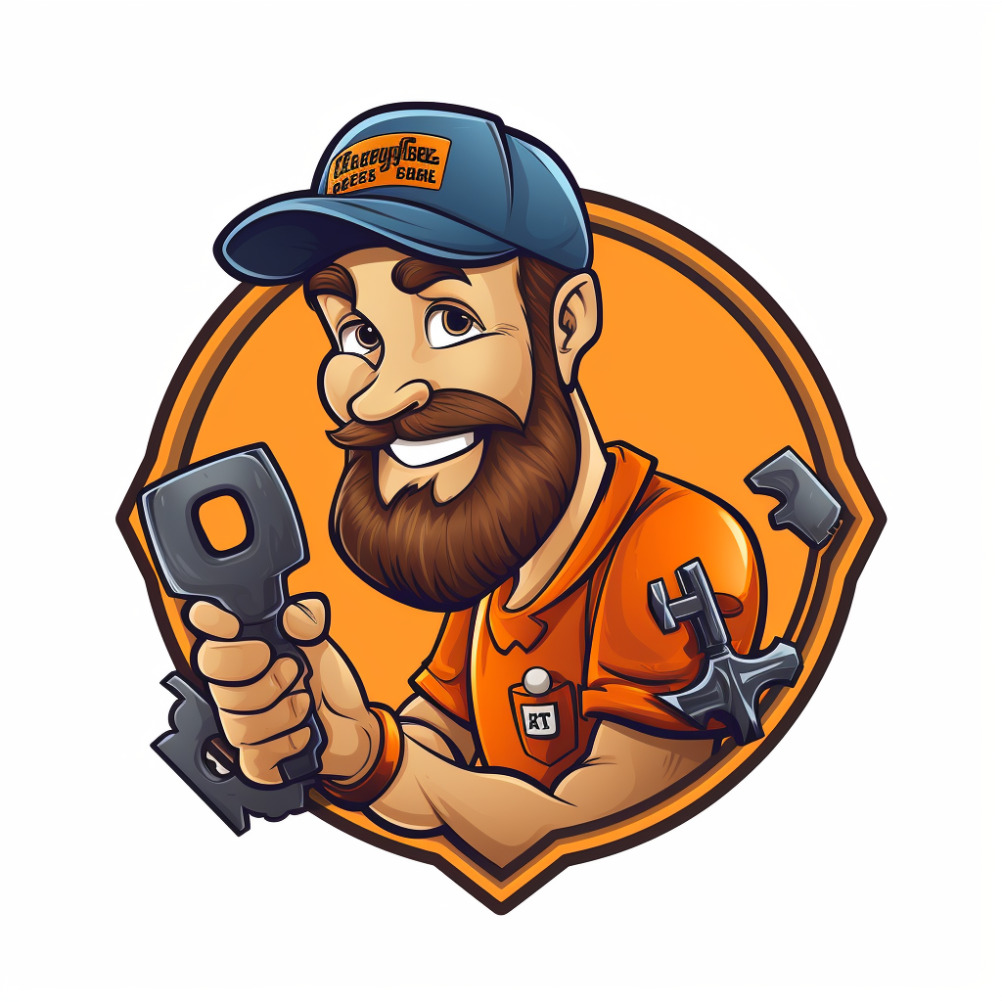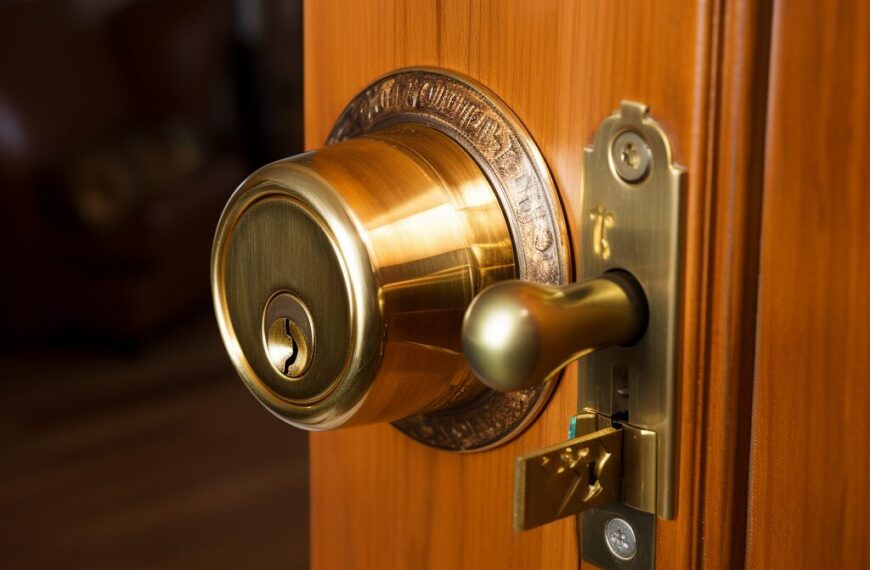Deadbolt locks are a popular security choice for many homeowners looking to protect their property. But like any mechanical device, deadbolts will eventually wear out over time. So how long can you expect a deadbolt lock to last before needing to be replaced?
The Lifespan of a Deadbolt Lock
On average, a quality deadbolt lock will last between 10-15 years with regular use before significant issues arise. However, there are several variables that can shorten or extend the lifespan of your deadbolt locks.
Quality and Type of Deadbolt
Higher quality deadbolt locks made of strong, corrosion-resistant metals like stainless steel will typically outlast cheaper budget options. Solid brass or bronze deadbolts also provide durability. Standard entry door deadbolts tend to have a longer lifespan than electronic keypad or smart deadbolts which have more components subject to wear.
Installation and Maintenance
Proper installation according to manufacturer guidelines helps ensure the deadbolt mechanism functions smoothly. Ongoing maintenance like lubricating the lock components and tightening any loose screws can prolong the life of a deadbolt. Failure to properly install or maintain a lock shortens its lifespan.
Frequency of Use
Deadbolts that are used more frequently tend to wear out faster. The constant cycle of locking/unlocking causes more internal friction. Deadbolts protecting exterior doors that are used multiple times daily will likely need replacement sooner than an interior deadbolt that rarely gets locked.
Environmental Factors
External factors like weather, humidity, salt air, dirt, and dust can corrode locks and cause them to fail sooner. Deadbolts in coastal climates or areas with extreme weather tend to have a shorter lifespan. Proper sealing and occasional cleaning can help protect exterior locks.
Signs Your Deadbolt is Failing
Some clear indicators that your deadbolt lock is reaching the end of its lifespan and needs replacement include:
- Difficulty getting the key to turn in the lock cylinder
- Sticking when trying to extend or retract the bolt
- Looseness or excessive play in the lock mechanism
- The bolt not fully extending or retracting
- Keys breaking off inside the lock cylinder
You may also notice more subtle signs like increased resistance when turning the key or the deadbolt making grinding noises. Waiting until total failure risks getting locked out of your home, so replace your deadbolt at the first major signs of wear.
Replacing a Deadbolt Lock
Many homeowners can handle replacing a deadbolt lock themselves with some basic tools and DIY skills. The process involves:
- Removing the old deadbolt mounting screws
- Extracting the cylinder and bolt mechanism
- Installing the new deadbolt in the door
- Adjusting the bolt depth for proper function
- Installing the cylinder and testing operation
Be sure to select a comparable replacement deadbolt made for the specific door type and hole sizing. Review the manufacturer instructions for proper installation. If not confident replacing it yourself, hire a professional locksmith for installation.
Extending the Lifespan of Your Deadbolt
While 10-15 years is the average, you can maximize lifespan through proper care and maintenance:
- Choose a high-quality deadbolt made of durable materials
- Have it professionally installed for smooth function
- Lubricate the lock interior every 1-2 years
- Clean exterior locks to prevent corrosion
- Avoid forcing keys or overstressing parts
- Replace batteries in electronic deadbolts regularly
- Consider upgrading to longer-lasting commercial or high-security deadbolts
With proper selection, installation, and maintenance, a quality deadbolt lock should provide maximum security for over a decade before replacement is needed. Paying attention to any signs of issues and addressing them early on can help extend the service life.
When to Call a Locksmith
If you experience total lock failure or notice significant issues impacting security, immediate repair or replacement is needed. A professional locksmith has the expertise to evaluate your deadbolt and determine if the issue is fixable or requires a full replacement. They can also handle more complex high-security deadbolt installations.
For homeowners looking to balance security, convenience, and value, investing in a durable deadbolt lock and taking steps to care for it properly will provide years of reliable access protection. With periodic inspection and proactive replacement once wear becomes evident, you can keep your property secured against intruders.
How can I improve my home’s security with better locks?
Investing in high-quality deadbolts from trusted brands like Schlage or Kwikset is the best way to secure exterior doors. Look for solid, Grade 1 or Grade 2 locks made of durable stainless steel. Properly installed deadbolts with 1-inch throw bolts provide maximum home security.
What is the typical lifespan of a door lock?
The average residential door lock lasts 10-15 years with regular use before needing replacement. Higher quality locks can last for decades with proper maintenance. Locks that are used heavily or exposed to elements wear out more quickly.
How do I know when it’s time to replace my old locks?
It’s time to replace locks when you notice issues like sticking, grinding, sagging, or problems getting keys to turn smoothly. If the bolt won’t extend fully or locks are damaged, it’s best to replace them. Rekeying can fix some issues, but replacing exterior locks every 10 years is a good rule of thumb.
Should I get smart locks for my home?
Smart locks with keypads, biometrics, or WiFi connectivity add convenience but may not last as long as traditional deadbolts. Make sure smart locks meet high security standards. Consider smart locks for interior doors and standard locks for exterior doors facing security risks.
What’s the easiest way to rekey my locks?
The simplest way to rekey locks is to hire a professional locksmith. They can efficiently rekey your locks to work with new keys, saving you the effort. Alternatively, you can buy rekeying kits for DIY rekeying. Just take care to follow all the steps to retain security.
How can I make my locks last longer?
Regular maintenance helps extend locks’ lifespan. Keep locks clean by wiping with a damp rag and applying a dry lubricant annually. Protect exterior locks from weather damage. Avoid spraying locks directly. Replace strike plates if screws loosen. And fix minor issues quickly to prevent worse wear.
How much does it cost to replace a lock?
On average, expect to pay $25-$50 per basic exterior door lock replacement. More complex smart locks or full handleset replacements range from $80-$250. Adding new strike plates, deadbolts, and labor can increase costs. Shop sales and buy in bulk to save.
When should I call a locksmith?
Call a professional locksmith anytime you experience lock failure or notice security issues. They can evaluate your locks, handle repairs and replacements, extract broken keys, and ensure proper installation. For complex lock work, their expertise is worth the cost.
References
How long do door locks usually last before it becomes difficult to unlock the door because the key doesn’t smoothly fit the tumblers inside? (2022, March 14). Quora. https://www.quora.com/How-long-do-door-locks-usually-last-before-it-becomes-difficult-to-unlock-the-door-because-the-key-doesnt-smoothly-fit-the-tumblers-inside
Deadbolts. (n.d.). The Home Depot. Retrieved February 27, 2023, from https://www.homedepot.com/b/Hardware-Door-Hardware-Door-Locks-Deadbolts/N-5yc1vZcjqk
Deadbolts. (n.d.). Lowe’s. Retrieved February 27, 2023, from https://www.lowes.com/pl/Deadbolts-Door-hardware-Hardware/3472293349








